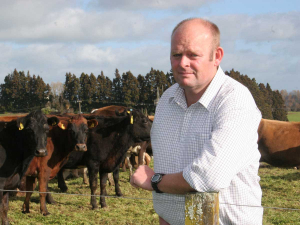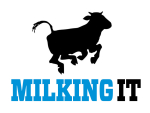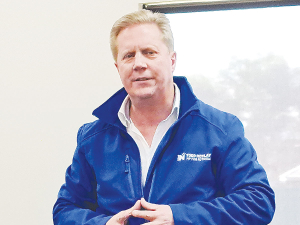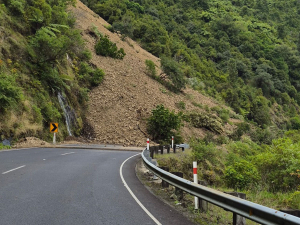One farmer leader is warning that with NZ milk production flattening, overcapacity could eventually lead to factory closures and pain for rural communities.
Olam International vice president Naval Sabri told Rural News that a formal announcement on the new plant is planned in the coming months.
The Singapore-based conglomerate is no stranger to the NZ dairy industry. Until recently it held a cornerstone stake in NZ's second largest milk processor, Open Country Dairy. It is also a major buyer of dairy products from Fonterra and other processors.
Sabri says Olam has enjoyed a long and successful history in New Zealand through its previous investment in Open Country Dairy.
"There is strong and growing demand from our global customers for high quality, New Zealand dairy products," he says.
"To be able to meet this demand and offer more customised solutions for our customers, we are progressing with plans to directly invest in our own dairy processing facility in New Zealand.
"The plant development is in the early stages and a formal announcement is planned in the coming months.
"Our priority at the moment is to meet with, and listen to, the views of farmers first. This will ensure we deliver on our commitment to develop milk supply partnerships in a way that best meets local needs."
Industry sources say Olam plans to build the factory at Tokoroa and has started recruiting key staff. It will be the second major greenfield dairy project in the Waikato region. Earthworks have started for Happy Valley Milk's $280 million plant in Otorohanga. Synlait and Open Country have also recently built new processing plants in Waikato.
Former Fonterra Co-operative Council chairman Duncan Coull finds it "somewhat surprising that there is a continuum of new investment in stainless steel given that production has plateaued or is in decline".
"Competition for milk at a farmgate level has always been touted as a positive but given the construct of the milk price setting mechanisms set by Fonterra, competition has generally followed, not led," he told Rural News.
Coull warns that overcapacity will lead to inefficiency at the processor level and ultimately affect farmer negtively as processors try and deal with a lower return on their own capital.
"Rationalisation will have to occur at some point to deal with this. The effect on rural communities at this point can be devastating."
Open Country Dairy chief executive Steve Koekemoer told Rural News that there's no question that competition for milk is getting tougher in some regions.
"We have no problem with competition, we have always been pro competition, but surplus stainless steel could bring a bit bring a bit of a challenge for the industry overall and certainly for any new entrant bold enough to enter the sector.
"Once capacity exceeds supply then I assume that some older milk plants in the industry may have to be retired or these plants won't be operating efficiently and that won't be ideal."
Approached for comment, a Fonterra spokesperson referred Rural News to its submission on the Dairy Industry Restructuring Act (DIRA) around over-capacity could lead to industry-wide low returns as milk growth drops.
Fonterra says that this could lead to a long period of stagnation in the sector, as seen in the red meat industry.
"Eventually players might capitulate and close plants," Fonterra's submission said.











